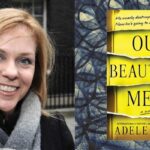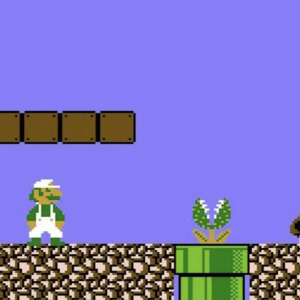
Poetry is Infinite: A Conversation with Jeffrey Schultz
"The poem should reveal an image of what is beyond linguistic expression."
For this installment in our series of interviews with contemporary poets, Peter Mishler corresponded with Jeffrey Schultz. Schultz is the author of two National Poetry Series selections: Civil Twilight (Ecco, 2017) and What Ridiculous Things We Could Ask of Each Other (University of Georgia Press, 2014). His poems have appeared in Boston Review, Indiana Review, The Missouri Review, Prairie Schooner, and Poetry. Schultz is a visiting assistant professor of English and creative writing at Pepperdine University, and lives in Los Angeles with his wife and a seemingly ever-increasing number of rescue animals.
*
Peter Mishler: Could you start by talking about your upbringing, your childhood, and some aspect of it that you think speaks to your life as a poet now?
Jeffrey Schultz: I grew up in Fresno, CA during the 1980s. Though it might not be at all apparent in my work, which has almost nothing direct to say about Fresno, Fresno’s landscape, or, more precisely, the experience of living in the midst of that landscape, is something that has had a tremendous influence on how I see things. Fresno has two characteristic sorts of weather: extreme, stifling, peel-the-skin-off-your-face heat on the one hand and on the other an impenetrably dense, bone-chilling fog, what folks from the San Joaquin Valley know as Tule fog. Each of these types of weather has the effect of simultaneously obscuring and focusing a person’s experience.
In the summer, especially when it gets above 110 degrees, the smog hangs low over the city and the horizon blurs to nothing; you become hyper-aware of the body and your attention contracts. It’s all at once blunt, dull, and intense. In the winter, when the fog rolls in, things are bizarrely similar: sometimes, you genuinely can’t see more than about ten feet. If, for instance, you have to drive anywhere, you have to put an enormous amount of energy into focusing on that pale, hazy void that opens up right in front of you so that you can slam on the brakes when another car’s taillights or a red light suddenly emerge from it.
I think the way my poems gaze upon those things that come to be within them is similar: there’s somehow an enormous sense of focus and concentration, and at the same time, a sense that something, perhaps the key thing, is held back or obscured or not able to be seen all at once.
Though I think my work has moved substantially in its own direction, I do more or less consider myself a poet of the Fresno school. The work of Phil Levine, Peter Everwine, Chuck Hanzlicek, and Connie Hales, all of whom taught at Fresno State, and other Fresno poets, most especially Ernesto Trejo, Roberta Spear, Larry Levis, and David St. John, has all been incredibly important to shaping the way I think about poetry and its possibilities. These are the poets who provided me a point of entry and a trajectory in the practice of composition.
PM: Poets sometimes talk about poetry as a method by which they begin to understand or clarify something more clearly before they had written the poem—is this a concept you ascribe to?
JS: At this point, I don’t try to write poetry in order to do anything at all other than trying to write poetry. That’s not to say I don’t come to understand things in the course of writing, but this seems incidental to me, incidental to my subjective experience when writing. I don’t think of the poems as tools meant to bring understanding to myself or others. I think of individual poems as attempts to extend the imagination toward poetry.
This means, among other things, that I don’t really think of any specific sort of audience, or even, for that matter, a general audience, when writing. As a poet, I try to be responsible and responsive to the poems themselves.
The poem should reveal an image of what is beyond linguistic expression, and it should do this by means of linguistic expression.
I used to think somewhat differently. When I was in school in Fresno, I worked as a janitor at an auto repair shop, and I used to think about writing poems that the mechanics there would find “accessible.” I developed a strong bias—and this is to a large extent part of the whole Fresno poetry thing—against obscurantism in poetry. I wanted my poems’ images to develop as clearly as possible. As, over the years, I’ve begun to work with more and more complex material, that urge to absolute clarity has both endured and transformed. I no longer try to write in such a way that the material will be clear to anyone in particular, but try, rather, to approach composition as a way of letting the material develop as clearly as possible according to its own inherent demands. I’m after, if this makes any sense, objective precision rather than any subjective sense of clarity.
PM: What kind of thinking or experiences occurred to you in advance of starting to work on this book that you see as having made the full journey toward some sort of fruition, culmination, or resolution now that the book has been completed?
JS: I did try a lot of things in this book that distance the “speaker” from the, for lack of a better word, “figure” in the poem: I avoided, in many poems, a too-direct collision with the “I,” I mean. I think I was trying to figure out ways to move between different levels of abstraction within the poems, and also to move beyond the limitations of the speaker that had developed in my first book. In the more recent poems I’ve been working on, I’ve been trying to integrate those levels or planes of abstraction back into an “I” more often than not. I tend to run in circles like that: work to figure something out, and then work back to figure it out all over again in the opposite way. I like to feel that I’m always pressing up against what I don’t know how to do.
PM: In one of the epigraphs that appear in your book you quote Yeats’s “surely some revelation is at hand,” and you emphasize the some. In what ways is there a relationship between your writing of poems and revelation for you?
JS: Something like what I would call revelation seems to me to be at the center of both the writing and reading of poems. On those occasions when I consider myself to have most fully experienced poetry, whether in regard to reading or writing, I would characterize that experience by saying that it was an experience of the image’s revelation. And I mean “the image” as a hard abstraction: like the image itself, well beyond—and yet at the same time entirely at one with—whatever the particulars of the poem at hand might be. The poem should reveal an image of what is beyond linguistic expression, and it should do this by means of linguistic expression. That’s the problem and the solution. The particulars of the arrangement are a whole other matter.
PM: What is the strangest thing you know to be true about the art of poetry?
JS: I’ve studied poetry as closely as I’ve been able for almost 20 years, not out of any “academic” interest or because I have any aspirations to scholarliness, but because I fell in love with it. I believe it is right to come to know the thing you love so that you can love it more and more fully as itself and not as some lie you tell yourself about it. Love, it seems to me, becomes more true the less it has anything to do with me. But the closer I come to poetry, the further it recedes. Because of this, I’ve come to believe that poetry is not something that can be arrived at or achieved or possessed in any way. Its very existence extends the horizon—it allows us to come to see things we could not have seen before—but it itself always lies beyond the horizon, no matter how far we move in its direction. In that sense, the practice of poetry leads toward something infinite; it can’t be exhausted. If that’s true, it would mean that there’s always more to do, always further to go. Poetry opens the imagination to an infinite process.
PM: I recently read your largehearted boy “book notes” because I wondered about your poems’ relationship to music, and when I read the notes at lhb, I got interested in your observation that your poems are fugue-like. Do your poems or does your writing resemble in some sense a “fugue state”?
JS: There may be some aspect of something akin to a fugue state in my experience of the process. That’s not to say I try to or think I do dissociate in some way during composition; in fact, I find that it tends to require enormous concentration, often of an order I can’t muster. I try to weigh the various elements as carefully and consciously as I’m able rather than “letting go” of a sense of control. But at the same time, once I finish a poem, I often feel pretty alienated from it.
This is certainly also related to the fact that I often work for a year or more on a single poem. It’s very slow work, and at the end, it’s like “how’d that get there? what even is it?” even though I know in some real detail exactly how it got there and what I think it might be. For whatever reason, I’m barely able to remember any of my own writing. Occasionally, people have quoted me at me and I haven’t recognized it. Though I think they’re “personal” in any number of ways, I don’t feel a particularly personal connection to them; they become their own things.
PM: Could you talk about your experience of adopting the rhetorical structure of an official resolution in the poem “Resolution in Loving Memory of Sky & Gooseflesh,” and how this came about?
JS: A certain element of it was just chance: I for some reason ran across the form of the funeral resolution, the sort of coldly bureaucratic and official analog to the more personal eulogy. These are common in some church traditions (where they will typically be read by clergy at a service as opposed to the friend or family member-delivered eulogy) and, oddly but not surprisingly, some corporate cultures. I’ve thought a lot about the form of the elegy over the years. A number of the poems that struck me very early on in my encounter with poetry were elegies in some more or less direct way, and I took a fantastic seminar on the elegy from Garrett Hongo in grad school.
I guess it sort of unfolds from there: the experiences of death and mourning in our society have changed drastically since the modern elegiac tradition began to solidify around Milton’s “Lycidas.” The question of how to approach the elegy now, in a society that has essentially industrialized “end of life care” becomes quite jarring. The communal space of mourning, which is where the elegy takes place, has itself died. And the dead don’t mourn. But they do haunt us through the structures of the world’s institutions. Our movements through the world, our consciousnesses, our fates, all that we know and are, takes shape within the dead grip of institutionalized existence, which demands that we go on living in the same stupid, destructive, meaningless ways the dead did. I like how this bureaucratic, official form of “whereas” statements and resolutions throws up a sort of barricade at the beginning of each section, how it throws an enormous weight of finality on top of things so that the poem has to struggle beneath it. If elegy can only speak from the bottom of its grave, the muffling earth piled on top of it is the complete instrumentalization of language. This is among the realities of living in a totalitarian society.
Peter Mishler
Peter Mishler is the author of two collections of poetry, Fludde (winner of Sarabande Books' Kathryn A. Morton Prize) and Children in Tactical Gear (winner of the Iowa Poetry Prize, forthcoming from the University of Iowa Press in Spring 2024). His newest poems appear in The Paris Review, American Poetry Review, Poetry London, The Iowa Review, and Granta. He is also the author of a book of meditative reflections for public school educators from Andrews McMeel Publishing.



















